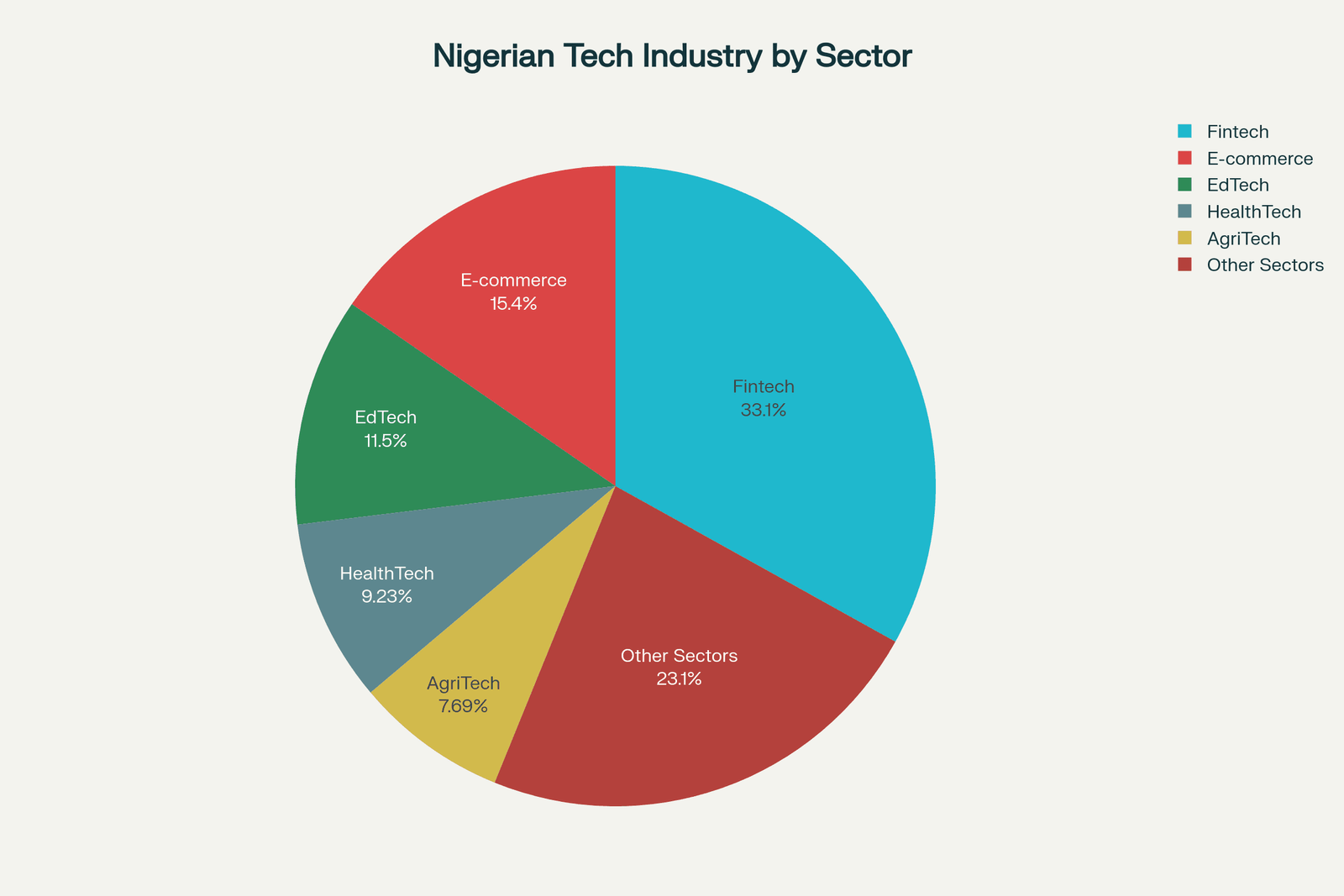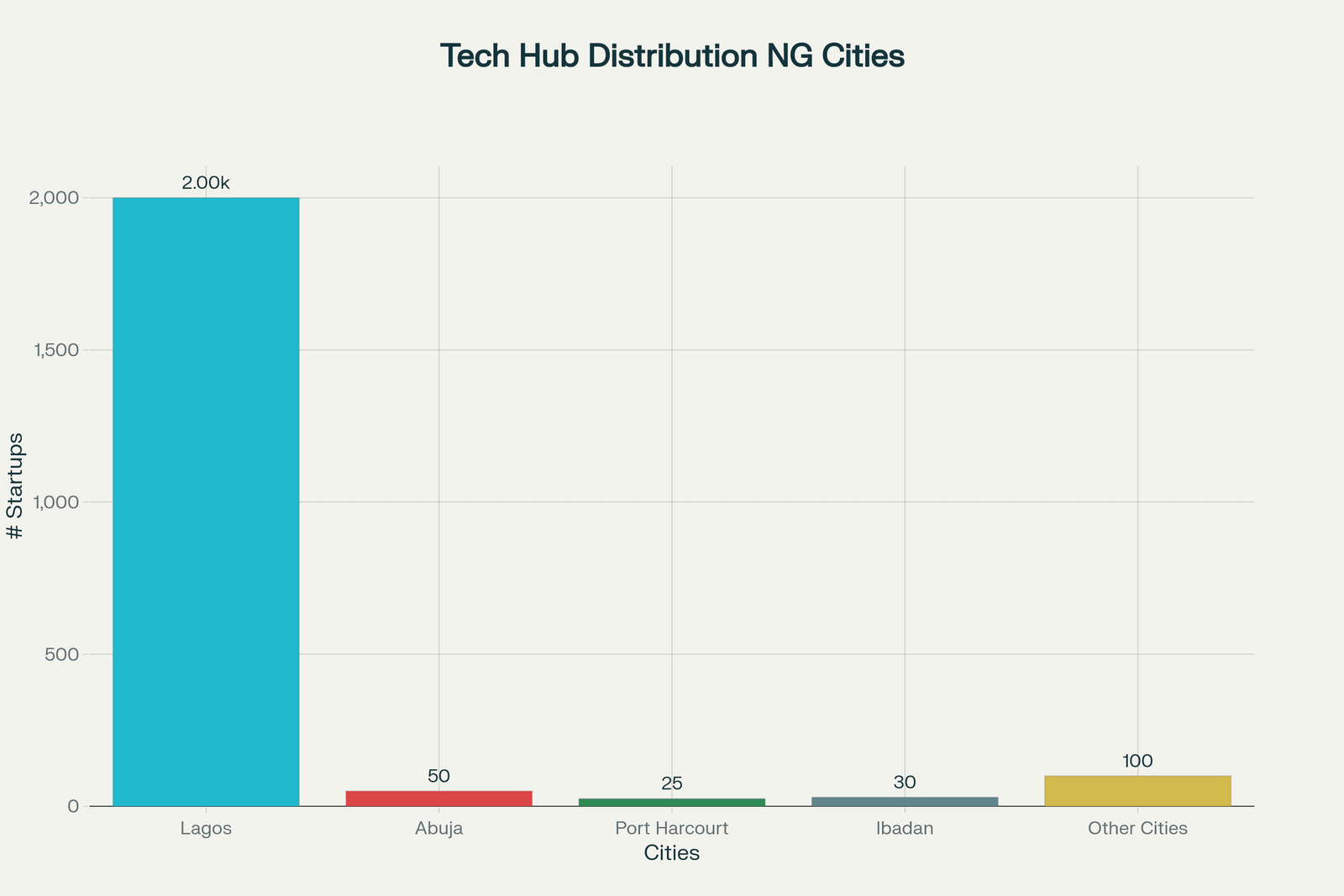Nigeria has firmly established itself as Africa’s leading technology powerhouse. With a rapidly expanding digital ecosystem that offers unprecedented opportunities for tech professionals, the country is positioning itself as the continent’s own Silicon Valley and creating thousands of job opportunities across diverse technology sectors. Understanding this complex tech ecosystem is key to navigating its potential.
The Growth of Nigeria’s Tech Industry
Nigeria’s technological revolution began in the early 2000s, but the transformation accelerated significantly over the past decade, driven by global investment, infrastructure development, and supportive government policies. The Information and Communications Technology (ICT) sector, which contributed less than 0.5% to the GDP in 2001, has evolved into one of the economy’s most significant drivers. As of the first quarter of 2025, the ICT sector contributes a remarkable 10.59% to Nigeria’s real GDP, boasting a nominal growth rate of an impressive 31.6%.
This explosive growth has not gone unnoticed by global investors. Nigeria consistently ranks among Africa’s top destinations for tech funding. In 2024, a challenging year for global venture capital, Nigerian startups still managed to raise $331.6 million, accounting for a substantial 29.6% of total African startup funding. This investment demonstrates strong international confidence in the resilience and potential of Nigeria’s tech ecosystem, which is further fueled by the country’s youthful population and its abundant, energetic talent pool.
How Many Tech Companies Are in Nigeria?
Estimates place the total number of tech companies in Nigeria at over 3,360 startups as of 2024, the highest figure in Africa. This ecosystem is diverse, but the fintech sector is the undisputed leader.
| Sector | Estimated Number of Companies |
|---|---|
| Fintech | 430+ |
| E-commerce & Retail | 200+ |
| EdTech | 150+ |
| HealthTech | 120+ |
| AgriTech | 100+ |
| Other (AI, IoT, Cybersecurity) | 300+ |

Breakdown of Nigerian tech companies by industry, highlighting fintech’s dominance.
Top Cities for Tech Companies in Nigeria
While tech is spreading nationwide, a few key cities are magnets for startups and talent.
| City / Hub | Estimated Startups | Key Innovation Hubs & Clusters |
|---|---|---|
| Lagos (Yaba, VI, Lekki) | 2,000+ | CcHub, Ventures Platform, Workstation NG |
| Abuja | 78+ | Ventures Platform, IC7 Africa |
| Ibadan | 89+ | Wennovation Hub, Startup Ibadan |
| Port Harcourt | 25+ | Olotu Square, Ken Saro-Wiwa Innovation Hub |

Distribution of tech startups across major Nigerian cities, illustrating Lagos’ dominance.
Best Tech Companies to Work For
Leading Fintechs
- Flutterwave — Africa’s highest-valued fintech ($3 billion) with 890 million transactions processed.
- Paystack — Stripe-owned payments leader handling over $250 million in monthly volume.
- Moniepoint — Unicorn banking platform that processed an astounding $100 billion in 2024.
- Interswitch — The pioneer behind Verve cards and the Quickteller digital payment platform.
Software & Infrastructure Leaders
- Andela — Global developer marketplace that has become a launchpad for African engineering talent.
- MainOne — A key player in Nigeria’s connectivity, operating sub-sea cables and Tier-III data centers.
- Jumia — The “Amazon of Africa,” leading in e-commerce and logistics across the continent.
In-Demand Jobs in Nigerian Tech
The tech industry offers diverse career paths with competitive salaries. Software engineering remains the most in-demand role, with salaries ranging from **NGN 1.65 million to NGN 8 million annually**.
Key Job Roles & Salary Insights
- Software Development: High demand for full-stack, mobile, and backend engineers.
- Data Science & Analytics: Mid-level roles can command up to NGN 1.2 million monthly.
- Product Management: One of the highest-paying roles, with senior managers earning over NGN 7.5 million annually.
- Cybersecurity: Critical roles with salaries ranging from NGN 1.2 to NGN 2.4 million annually.
- Remote International Roles: Nigerian developers working for foreign companies can earn an average of $53,658 annually.
How to Land a Job in Nigerian Tech
Skill-Building & Job Platforms
Aspiring professionals should focus on in-demand skills like AI, cloud computing, and full-stack development. The government-backed 3 Million Technical Talent (3MTT) program offers a fantastic, free entry point. For job searching, platforms like Jobberman Nigeria, LinkedIn, and remote-focused boards like RemoteAfrica and Peepuu are essential. You can even learn how to leverage ChatGPT to land your dream job in this competitive market.
Portfolio & Networking
A strong GitHub portfolio showcasing real-world projects is non-negotiable for technical roles. Attending flagship events like Lagos Tech Fest, DevFest Lagos, and the Nigeria FinTech Summit is crucial for networking with founders, recruiters, and industry leaders.
Challenges & Opportunities
Despite its rapid growth, the ecosystem faces hurdles. Grid unreliability can add 15-25% to a startup’s operational costs, and while funding is strong, it’s highly competitive. Connectivity is another major factor, with ongoing debates about which provider offers the best internet for gamers and remote workers. However, these challenges are being met with solutions. The government’s $2 billion Fiber Fund aims to solve connectivity issues, and the rise of remote work allows companies and talent to overcome infrastructure and location barriers, creating a more resilient and distributed tech industry.




